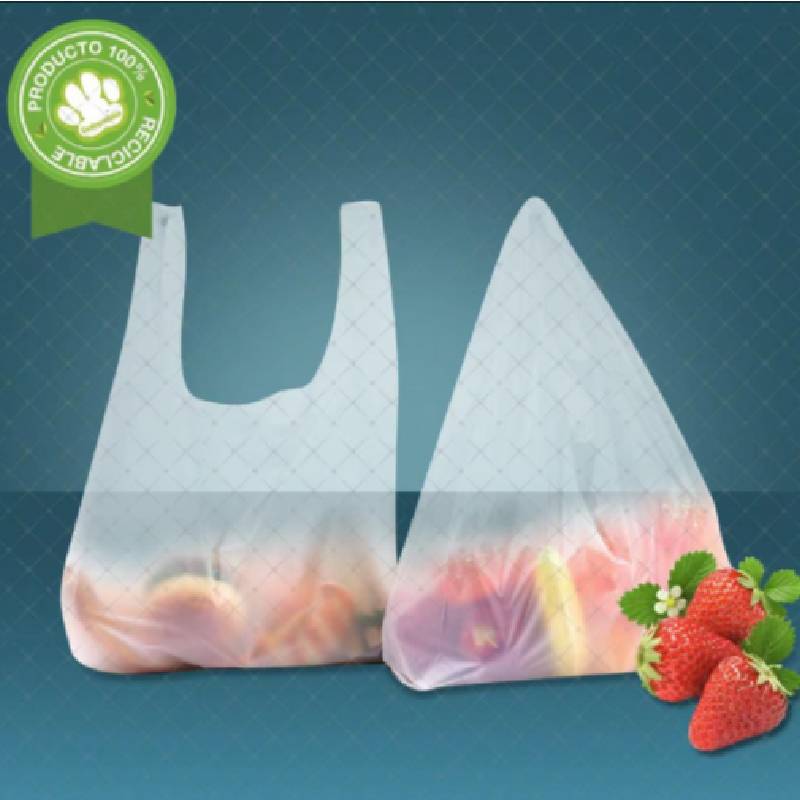compostable fruit and vegetable bags
The Rise of Compostable Fruit and Vegetable Bags A Sustainable Solution for Grocery Shopping
In recent years, environmental concerns have surged to the forefront of consumer consciousness, leading to a significant shift in how we perceive packaging, especially in the context of fruits and vegetables
. Traditional plastic bags, commonly used in grocery stores, have come under scrutiny for their detrimental effects on the environment. As a result, compostable fruit and vegetable bags have emerged as a sustainable alternative, presenting a solution that is not only eco-friendly but also appealing to environmentally conscious consumers.Compostable bags are made from biodegradable materials, such as cornstarch, potato starch, or other renewable resources. Unlike conventional plastic bags, which can take hundreds of years to decompose, compostable bags break down into organic matter in a much shorter timeframe when exposed to the right conditions. This degradation process not only reduces waste in landfills but also enriches the soil, promoting environmental health.
One of the most significant advantages of compostable fruit and vegetable bags is their impact on reducing plastic waste. The global plastic crisis is alarming, with millions of tons of plastic ending up in oceans and landfills each year. The introduction of compostable bags into grocery stores can lead to a notable decrease in single-use plastics. As consumers become increasingly aware of their ecological footprint, they are more likely to choose compostable options, helping to pave the way for a healthier planet.
Moreover, compostable bags are often available in various sizes and formats, making them suitable for different types of produce. Whether shoppers need a small bag for herbs or a larger one for bulk fruits and vegetables, these bags offer versatility tailored to consumers' needs. The transparent design of many compostable bags also allows customers to easily identify the contents, ensuring a convenient shopping experience that doesn't sacrifice aesthetics.
compostable fruit and vegetable bags

However, the effectiveness of compostable bags largely depends on how they are disposed of after use. To fully harness their ecological benefits, consumers must be educated on the proper disposal methods. Compostable bags are designed to be composted in industrial composting facilities, where specific temperature and humidity conditions facilitate rapid degradation. Not all compostable bags can break down in typical backyard compost piles, so understanding the local composting options is crucial. Therefore, grocery stores can play a vital role in promoting awareness by providing information on how to properly dispose of these bags, thus enhancing their overall effectiveness.
While the shift towards compostable bags is promising, there are challenges that need to be addressed. The production process of these bags must also be environmentally sustainable. For instance, if manufacturing leads to deforestation or excessive carbon emissions, the intended benefits of using compostable materials may be offset. It is essential for companies to source materials responsibly and invest in sustainable practices throughout the supply chain.
Additionally, the cost of compostable bags compared to regular plastic bags can be a barrier for some consumers and retailers. As production techniques evolve and economies of scale come into play, it is hoped that prices will decrease, making eco-friendly options more accessible to the mainstream market. In the meantime, consumers can support local businesses that prioritize sustainability, creating demand that encourages more retailers to adopt compostable alternatives.
In conclusion, compostable fruit and vegetable bags represent a significant step towards reducing our reliance on single-use plastics and mitigating the environmental impact of grocery shopping. Their benefits extend beyond mere convenience; they offer a pathway to a more sustainable future where consumers can play an active role in protecting the planet. By choosing compostable options and properly disposing of them, we can collectively contribute to a greener environment. As awareness grows and technology advances, it is imperative that both consumers and retailers commit to embracing this eco-friendly alternative. The journey towards sustainability is ongoing, but with the rise of compostable bags, we are undoubtedly moving in the right direction.
-
The Best Uses for Small Trash Bags in Daily LifeNewsJul.01,2025
-
Stylish Reusable Grocery Bags TrendsNewsJul.01,2025
-
Shipping Advantages of Using Bubble Envelopes BulkNewsJul.01,2025
-
How Compostable Mailing Bags Reduce Environmental ImpactNewsJul.01,2025
-
Environmentally - Friendly Bulk Poly MailersNewsJul.01,2025
-
Eco Friendly Custom Laminated Tote BagsNewsJul.01,2025
-
Have the freedom of customizing your custom mailers any way you want! Our dedicated packaging support will help deliver you the mailing experience you need to elevate your shipping experience to the next level! Start making a strong impression on your customers and stand out from your competitors! -
LIYA uses high quality raw materials which directly purchased from large enterprises domestic and overseas such as PetroChina, Sinopec, Sabic, Equate, ExxonMobil, Dow Chemical, Total, and Borouge, ensuring the price advantage and quality of the raw materials. -
LIYA uses high quality raw materials which directly purchased from large enterprises domestic and overseas such as PetroChina, Sinopec, Sabic, Equate, ExxonMobil, Dow Chemical, Total, and Borouge, ensuring the price advantage and quality of the raw materials.





